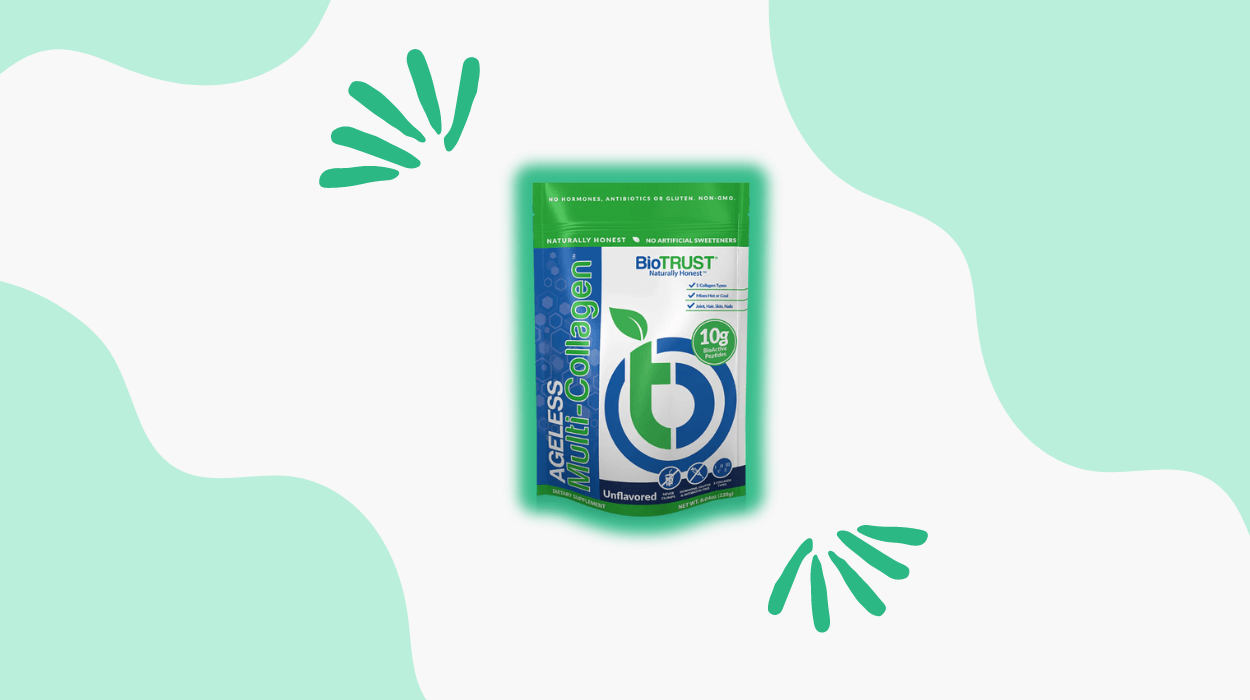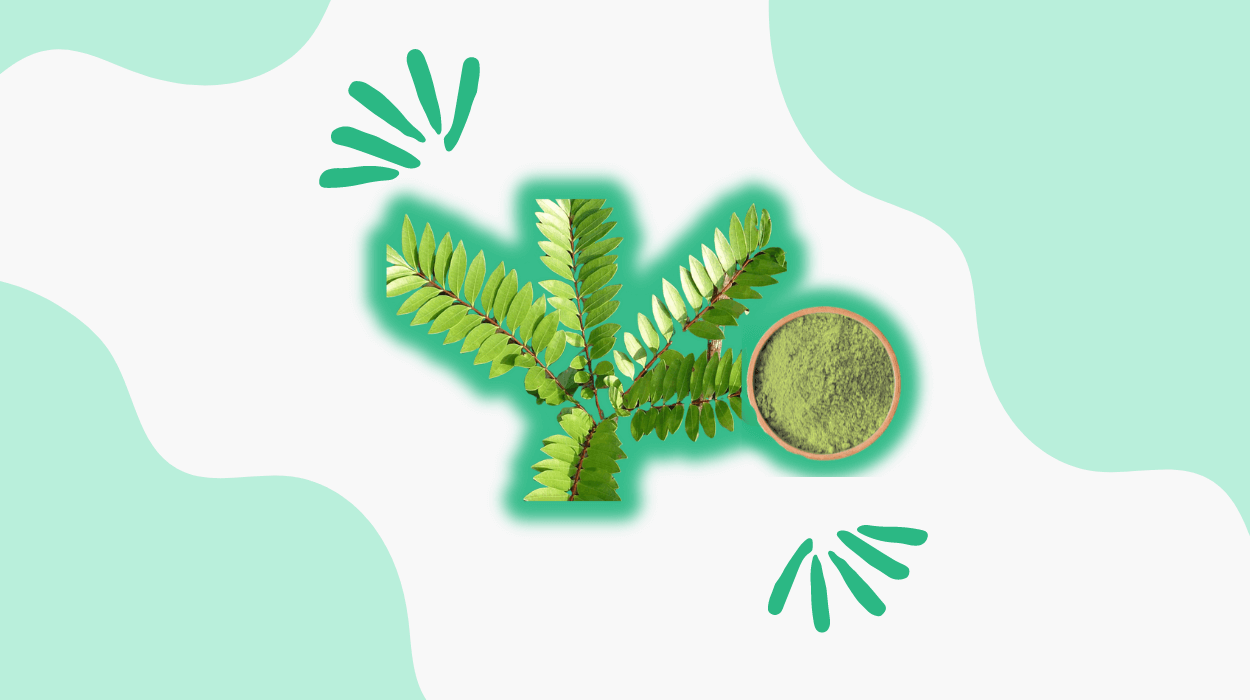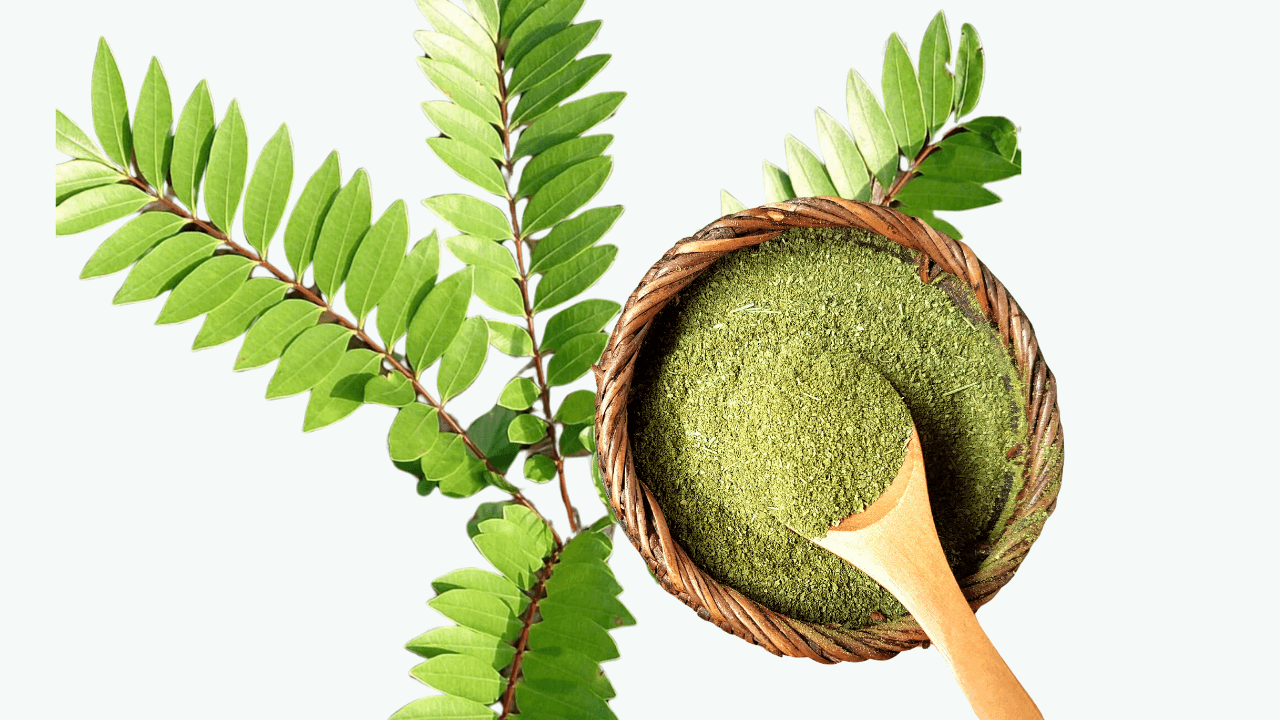

Tongkat ali, also known as Malaysian ginseng or Long Jack, is significant in traditional herbal medicine due to its historical uses as an aphrodisiac and remedy for conditions like malaria.
Tongkat Ali is a herbal plant with many health benefits. It has garnered attention for its impact on sexual performance, hormonal balance, stress relief, and exercise enhancement.
The plant’s roots, bark, and fruits have been utilized for centuries to stimulate appetite, enhance strength, and even serve as an antibiotic in certain cultures.
However, it is essential to note that while Tongkat Ali shows promise in various areas, including male sexual performance and stress management, the scientific evidence supporting these claims is still developing. Read more to learn about Tongat Ali’sAli’s potential health benefits, dosage, drawbacks, and more.
Tongkat ali, also called longjack, is an herbal plant that comes from the roots of a green shrub tree called Eurycoma longifolia, which was initially found in Southeast Asia. It’s been used in traditional medicine in countries like Malaysia, Indonesia, and Vietnam.
The plant contains bioactive compounds like flavonoids, alkaloids, and antioxidants, which can help fight damage to cells induced by harmful molecules known as free radicals.
These antioxidants may also help lower the risk of heart disease, reduce inflammation, and reduce blood pressure.
The plant’s adaptogenic properties make it a suitable remedy for stress adaptation, hormonal health, and immune support.

Tongkat Ali could help enhance male sexual function through its bioactive compound known as eurycomanone.
This compound could help in promoting male reproductive health by exerting steroidogenic activity and anti-estrogenic effects.
Eurycomanone interferes with the aromatase enzyme and prevents the conversion of testosterone into estrogen in the Leydig cells of the testes, the main site for the production of sperm in men.
At higher doses, eurycomanone might inhibit phosphodiesterase (PDE) activity, leading to an accumulation of cyclic AMP. This accumulation results in increased cholesterol transport and enhanced production of pregnenolone, a precursor for testosterone synthesis.
Eurycomanone could activate the CYP17a enzyme, which may also boost the production of testosterone precursors such as DHEA and androstenedione.
Tongkat Ali’s ability to enhance sperm production could also be facilitated by the increased production of the follicle-stimulating hormone (FSH) and gonadotropins luteinizing hormone (LH). These hormones elevate testosterone and promote sperm production in the testes.
The roots, bark, and fruits of Tongat Ali have been utilized as natural remedies to address a diverse range of health conditions.
Among these traditional uses are the treatment of sexual dysfunction, malaria, high blood pressure, anxiety, intestinal worms, diarrhea, and post-workout recovery.
Tongkat Ali has been employed to reduce symptoms of aging, itching, dysentery, constipation, fever, diabetes, cancer, jaundice, lumbago, indigestion, leukemia, aches and pains, syphilis, and osteoporosis.
Tongkat ali might help balance testosterone levels naturally, providing an alternative for those looking to improve testosterone without using synthetic hormones.
Low testosterone could be a result of various factors such as aging, chemotherapy, radiation treatments, medications, testicular issues, chronic alcoholism, and certain diseases like obstructive sleep apnea. Symptoms of low testosterone include infertility, erectile dysfunction, or low libido.
Tongkat ali has shown the potential to boost testosterone levels, which could help alleviate these symptoms. The bioactive compounds in Tongkat Ali may stimulate the production of testosterone, which could lead to improvements in sexual health and improved libido for men with low testosterone levels.
Tongkat ali extract’s ability to enhance testosterone levels in men may also contribute to an increase in muscle mass and energy levels. It may also aid in combating the effects of stress and fatigue associated with low testosterone.
Tongkat ali may promote mental wellness and positively impact your mood and has shown promising effects on stress management.
Research involving 93 healthy adults revealed that Tongkat ali consumption led to increased markers of stress management. Participants showed improvements in feelings of vigor and friendliness, indicating a positive impact on emotional well-being.
Tongat Ali may also enhance sleep quality, which might help manage stress levels and promote overall mental health.
Research suggests that Tongkat Ali might have a favorable impact on male fertility and sexual performance based on findings from both animal and human studies.
Tongkat ali was also associated with heightened production of testosterone, an essential hormone critical for male reproductive health. This may help enhance male fertility and optimize sexual well-being.
The reported effects of Tongkat Ali on male fertility and sexual performance could be attributed to its eurycomanone bioactive compound that might help inhibit the testosterone to estrogen conversion.
Enhancing exercise performance and facilitating recovery may be supported by the potential effects of Tongkat Ali on testosterone, cortisol, and other relevant biochemical markers.
Tongkat ali has been linked to supporting healthy testosterone levels, which play an important role in muscle strength, endurance, and overall athletic performance.
It could potentially lower cortisol levels, known as the stress hormone. It might help reduce the negative impact of stress on exercise performance and recovery.
Tongkat Ali could potentially have performance-enhancing benefits for athletes. Research suggests that E. longifolia may reduce stress and elevate testosterone levels, which may improve your athletic performance.
A 2016 review indicated that high dosages and prolonged use of E. longifolia could offer advantages in endurance performance.
In a 2014 pilot study involving physically active people aged 57–72 years, supplementation with E. longifolia extract for five weeks resulted in enhanced muscle strength and increased testosterone levels.
These findings support the idea that E. longifolia could be a beneficial ergogenic aid for athletes looking to boost their physical capabilities.
Consulting with healthcare professionals or sports nutrition experts before including E. longifolia in your diet plan is advisable to ensure proper dosage, safety, and suitability based on your health conditions and goals.
Tongkat Ali may not be as potent as other herbs in addressing osteoporosis. Still, there is evidence to suggest that it could potentially contribute to preventing bone loss, which might be essential for overall bone health.
Some studies indicate that Tongkat Ali may support mineral absorption, such as calcium, which is necessary for maintaining strong and healthy bones.
The anti-inflammatory effects of Tongkat Ali could potentially benefit bone health by reducing inflammation that may contribute to conditions like osteoporosis.
Tongkat ali’sali’s ability to support hormonal balance and potentially aid in stress reduction may indirectly impact bone health, as hormonal imbalances and chronic stress may adversely affect bone density over time.
People trying to enhance their vitality may consider consuming Tongkat Ali. It might help improve their energy levels.
Men with low testosterone levels may also find Tongkat Ali beneficial. It could help enhance their sexual health and performance.
People looking to improve their physical performance, muscle strength, and endurance may also consider adding Tongkat Ali into their routines.
However, it is important to ensure proper safety and dosage by seeking medical guidance, especially if you have specific health conditions or are uncertain about their compatibility with your current medications.
You may try consuming Tongkat Ali on a daily basis. However, you should keep these points to keep in mind:
Tongkat Ali is a natural herb with various health benefits that could interact with certain medications.
Moderate interactions have been noted with herbs like astragalus, echinacea, and maitake, which should be used carefully alongside Tongkat Ali.
Mild interactions with glipizide, metformin, and miglitol might also occur, highlighting the importance of informing your healthcare provider about all medications you are taking before using Tongkat Ali.
Limited research on Tongkat Ali has led to an incomplete understanding of its potential side effects, particularly concerning its impact on testosterone levels and hormonal balance.
Due to its influence on testosterone, Tongkat Ali may not be suitable for people with already elevated hormone levels.
Elevated testosterone levels resulting from Tongkat ali consumption could lead to various symptoms. In men, excessive testosterone levels may manifest as hair loss and prostate enlargement.
Women with increased testosterone levels might experience acne, hair thinning, anxiety, depression, and even infertility.
Research indicates other potential side effects of Tongkat Ali, including interactions with medications and supplements. These could include medications for diabetes or for lowering blood glucose levels.
When determining the appropriate dosage for Tongkat ali extract, it is essential to consider its safety profile and potential health implications.
Here are some key points to keep in mind:
Tongkat ali is commonly used as an adaptogen for energy and vitality and for enhancing testosterone levels.
A recent study examined 30 men who received either a placebo or 500 mg/day of Tongkat Ali for two weeks in a matched-pair, placebo-controlled and double-blind research.
In this study, dosage with a proprietary Tongkat ali sustained testosterone levels in young and healthy male volunteers.
Participants were instructed to fast for ten hours before each lab visit and to abstain from sexual activity, performance-enhancing substances, alcohol, and high-intensity exercise.
The exact mechanism of Tongkat ali root extract may have been unknown. Still, it was believed to help restore normal testosterone levels by enhancing the discharge of free testosterone from the sex hormone-binding globulin.
Tongkat Ali offers a wide range of potential benefits, from boosting physical performance and testosterone levels to aiding stress management and mental well-being.
However, it’s important to use it carefully, just like any other herbal component. Knowing the correct dosage, potential risks, and how it might interact with medications is critical to getting the most out of it while avoiding any adverse effects.
Seeking advice from doctors and discussing your health status and potential allergy triggers are important steps in making the most of Tongkat Ali for better health and wellness.
Tyler Read earned an undergraduate academic degree from Sonoma State University, California and is a certified personal trainer (CPT) with NASM (National Academy of Sports Medicine). With over 16 years of experience, Tyler has trained clients both online and in-person.
He is passionate about helping others turn their love for fitness into a career. Tyler has worked with many local and commercial gyms before establishing his successful private personal training business, which he continues to operate.
